Need Help?
22 April 2024
Prof. Dr. Giulio Cerullo Appointed Editor-in-Chief of Applied Sciences

We are pleased to announce the appointment of Prof. Dr. Giulio Cerullo as the new Editor-in-Chief of Applied Sciences (ISSN: 2076-3417).
Name: Prof. Dr. Giulio Cerullo
Affiliation: Dipartimento di Fisica, Politecnico di Milano, Piazza L. da Vinci 32, 20133 Milano, Italy
Interests: lasers; optical instruments; nonlinear optics; ultrafast optics; time-resolved spectroscopy
Prof. Dr. Giulio Cerullo is a Full Professor at the Physics Department, Politecnico di Milano, where he leads the Ultrafast Optical Spectroscopy laboratory. His research activity focuses on the generation of tunable few-optical-cycle light pulses and on their application to the study of primary photoinduced processes in molecules, nanostructures, and two-dimensional materials. He has published more than 550 papers which have received over 30000 citations (h-index 89 according to Scopus). He is a Fellow of the Optical Society of America and the European Physical Society, a member of the Accademia dei Lincei and past Chair of the Quantum Electronics and Optics Division of the European Physical Society. He was General Chair of the conferences CLEO/Europe 2017, Ultrafast Phenomena 2018 and the International Conference on Raman Spectroscopy 2022. He was the 2023 recipient of the EPS-QEOD Quantum Electronics Prize. He sits on the editorial boards of the journals Science Advances, Laser & Photonics Reviews, Journal of Physical Chemistry and Scientific Reports. He has received an ERC Advanced Grant and has participated in many European projects, including the supervision of seven Marie Curie Individual Fellowships. He is the co-founder of two spin-off companies (Cambridge Raman Imaging and NIREOS).
We are confident that his vision and leadership will steer Applied Sciences towards new heights of success.
The following is a short Q&A with Prof. Dr. Giulio Cerullo, who shared his vision for the journal with us, as well as his views of the research area and open access publishing:
1. What appealed to you about the journal that made you want to take the role as its Editor-in-Chief?
Applied Sciences is one of the largest open access journals, covering a wide range of topics, from physical and chemical sciences to biology, engineering and environmental sciences. In terms of scope, impact, and number of published papers per year, it compares to other leading open access journals such as Scientific Reports and PLOS ONE. I see, therefore, the role of Editor-in-Chief as a challenge but also a unique opportunity to make an impact on the scientific community of which I am part.
2. What is your vision for the journal?
I aim to promote the visibility and the impact of the journal by attracting the best researchers to publish their results in Applied Sciences. The visibility of the journal can be promoted, for example, by influential invited review or perspective papers or by Special Issues dedicated to emerging topics and coordinated by leading scientists. At the same time, it is important to maintain, and even increase, the rigor of the peer-review process, which is the foundation on the reputation of the journal. As an author and Editor-in-Chief of Applied Sciences, I could appreciate the rigorous and efficient peer-review procedure, which ensures high scientific quality and credibility of the published articles. Nowadays, however, new challenges to scientific integrity arise, such as for example the use of artificial intelligence for writing papers, for which adequate countermeasures need to be developed.
3.What does the future of this field of research look like?
Applied Sciences covers an extremely broad and interdisciplinary field of research, which concerns all the applied aspects of natural sciences, from biology to physics, chemistry, and engineering. Nowadays the impact of science on society is becoming greater than ever, and therefore the translation of fundamental scientific discoveries into technological and industrial applications is of key importance. The 2030 Agenda for Sustainable Development, adopted by the United Nations in 2015, identified 17 Sustainable Development Goals (SDGs), whose accomplishment will ensure peace and prosperity for the people and the planet, for the present and the future. Scientific research such as the one published in Applied Sciences will play a key role in the achievement of the SDGs.
4. What do you think of the development of open access in the publishing field?
Open access is very important as it enables all researchers, especially those from emerging countries who may have limited financial resources, to access all the novel generated scientific knowledge. Many funding agencies, including the European Union, mandate open access for all the publications which stem from their funded projects. For the authors, open access is also advantageous, as it increases the penetration of their research and consequently its impact.

